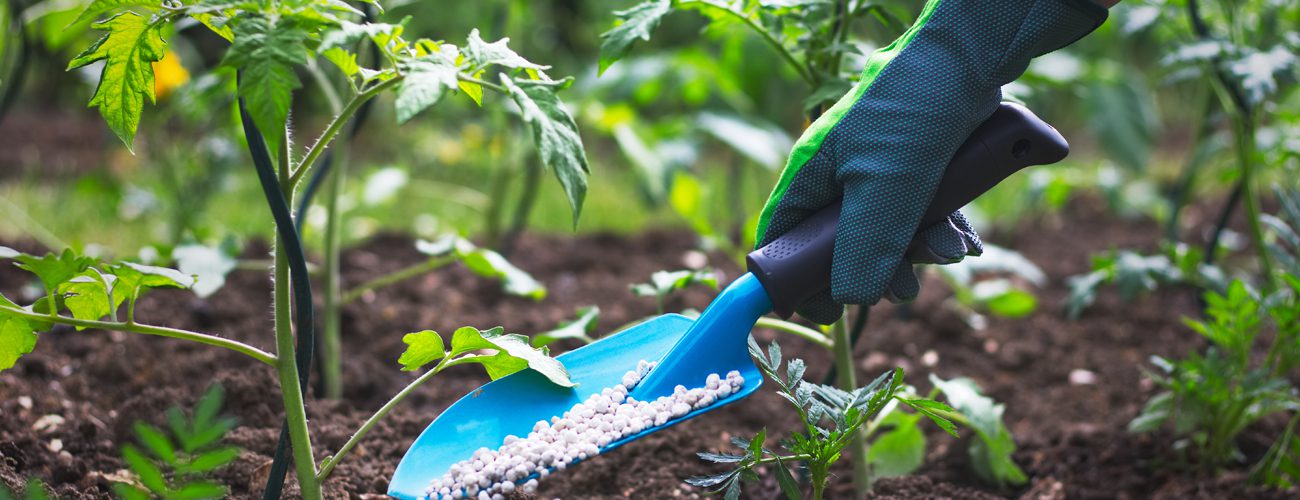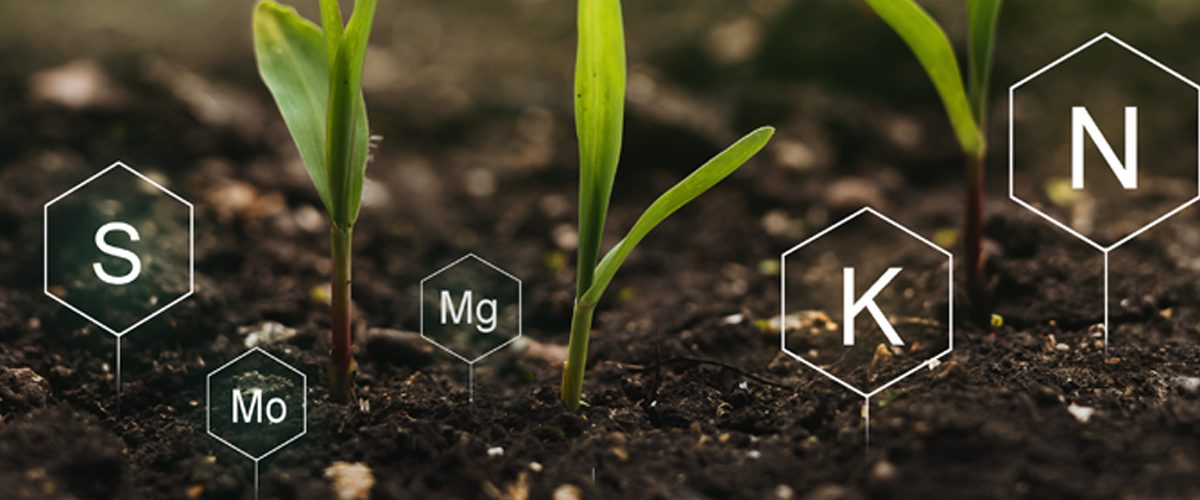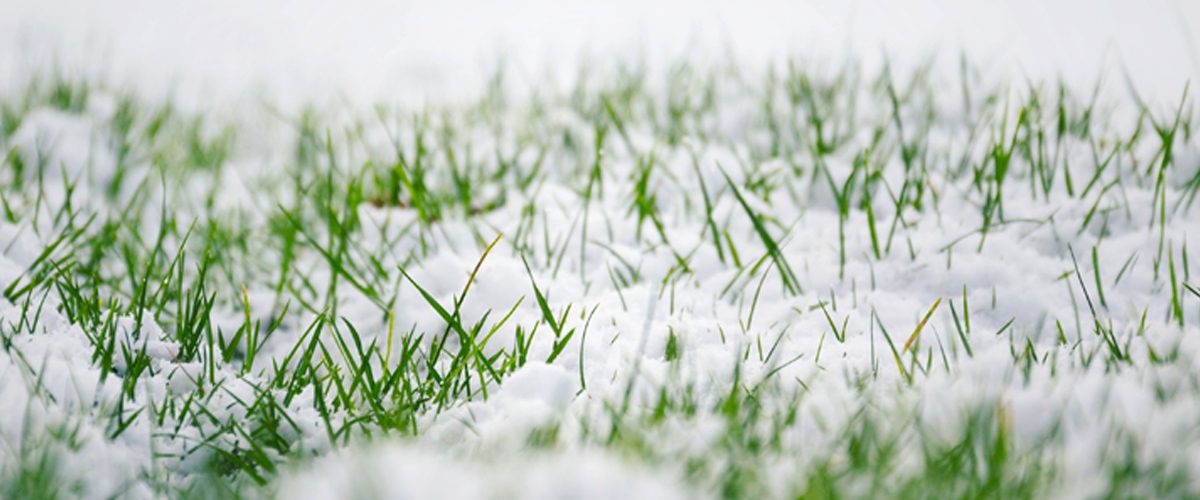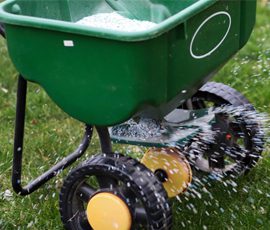
If you have a lawn that you want to maintain, then you need to make sure you are doing everything you can all year round. Constant maintenance is the best way to make sure that your lawn stays healthy throughout the harsh temperatures in the warm summer months. If you want to know more about fertilizing your lawn in the summer, then keep reading!
What does fertilizer do?
If you have ever wondered whether or not you should fertilize your lawn, then have a look at what it does and why it’s needed. Fertilizer is our way of giving nature a bit of an extra boost when it comes to growing. Nutrients are found naturally, but they can sometimes become depleted for various reasons.
Adding fertilizer to your soil will ensure that the soil stays as healthy as possible, which will allow your lawn to grow quickly and easily. There are quite a few fertilizers on the market designed specifically for lawns. They usually have a formula that helps add moisture, bring in extra nutrients, and stimulate the roots to allow them to plant themselves deeper into the ground.
How much fertilizer do I need, and what kind should I use?
No matter what kind of fertilizer you are using, you should always start with a small amount and increase as needed. Fertilizers’ extra nutrients will often disrupt the natural pH level of your lawn in a good way, but if you add too much, then you could be killing your lawn with the extra nutrients.
Each fertilizer will likely give you a different measurement to use per square meter, and it’s essential to stay within these guidelines. You also need to ensure you are using a lawn fertilizer instead of a garden or an “all-purpose” fertilizer. The ratio of phosphorus to nitrogen is different for garden fertilizers, and they also add other nutrients that your lawn might not even need.
Fertilizers are usually made up of Nitrogen, Phosphorus, and potassium. This combination is represented by the minerals’ periodic elements as an NPK ratio, and the most common ratios are usually a 3/1/2 (three parts nitrogen, one part phosphorus, and two parts of potassium) or a 4/1/2 (four parts nitrogen, one part phosphorus and two parts potassium). There are other formulas and ratios available for specific situations (winterizing your lawn or killing errant weeds, for example), but these are the most common ones that work well with most grasses.
Nitrogen-based fertilizers come in two different styles: Fast release (less expensive with a quick response, but it’s likely to cause burns if overused, and you will often lose quite a bit to the air and soil) and controlled release (creates consistent growth with little burns but it’s more expensive, doesn’t work well in the cold and it will take longer to work) so you need to choose the one that works best for your needs.

Why should I fertilize in the summertime?
Many people do a few rounds of fertilizer for their lawn every spring and use the naturally produced mulch from grass clippings to help their lawns in the summer. This can help some lawns, but you need to add a bit extra to ensure it stays healthy. Grass clippings are full of nutrients, but they can dry up quickly in the hot sun, which means your lawn will dry up too.
Moisture is one of the most important things you need to worry about in the summertime. A dry lawn will die fast, and you can’t rely on rainfall to keep it looking fresh. Installing a timed irrigation system is the best way to ensure your lawn maintains a suitable moisture content without worrying about dragging out the hose and sprinkler every few days.
What temperature is too hot to fertilize my lawn?
We talked about how fertilizer is one of the best ways to ensure your lawn stays nice and moist in the hot summer heat, but there can be times when the temperatures are too high. If the temperatures are too high (above 30 degrees Celsius/85 degrees Fahrenheit), the fertilizer will end up burning the lawn, and the damage could be irreversible.
The best time to fertilize in the summer is in the evening or when the weather is overcast. The temperature is usually still high at these times, but you are less likely to have the burning sun beating down on the grass.
How do I know when to stop fertilizing my lawn?
After keeping your lawn fertilized for the summer and fall, it’s time to “put your lawn to bed” before the winter frost arrives. You can do this by adding a layer of fertilizer to any damaged spots in the early fall (near the end of august or beginning of September) to promote growth in the poorly growing areas.
When you fertilize the lawn, it produces chlorophyll in the grass, and the grass gets nice and full of sugar before winter comes. The extra chlorophyll makes it harder for the grass to freeze entirely, and it will likely stay green all winter long. You can also do another application to the entire yard in mid-October to ensure that it can survive the harsh winter temperatures.

Is fertilizing my lawn enough to help it stay healthy all summer?
If you find that your lawn is already luscious and green without the extra work of fertilizing, then you might not even need to worry about it. Some areas are higher in nutrients for many different reasons, and this means that some lawns will grow well no matter what. If you want it to stay healthy, you should focus on figuring out the best times to mow it and water it.
Mowing your lawn should be done when it starts to get out of hand, but in the summertime, mowing it weekly is a good idea. When you mow, you need to make sure you aren’t cutting the grass too low, or else you can risk frying it in the hot sun. Try and stick to taking off 1/3 of the length every time to keep it healthy.
When it comes to watering, it’s best to water your lawn when it’s necessary, but two to three times a week is average. If you find that your lawn care is too much, then look into installing an irrigation system. These systems will allow you to water your lawn easily and can be easily programmed to turn on whenever you want.
What are the most common mistakes when it comes to summer fertilizer?
Fertilizing your lawn in the summer heat is usually not recommended. It’s a great way to make sure your lawn stays healthy, but you need to ensure you’re doing it correctly, or you will end up stuck at square one with a big patch of dirt. Let’s look at a few common mistakes you can make when using fertilizer in the summer so you can avoid them.
Wrong amount: If you don’t use enough fertilizer, then you might not get any results which means you will be wasting time and money on your lawn. On the other hand, using too much could damage the lawn and the soil underneath by overloading it with excessive nutrients. While you might get a quick growth by over-fertilizing, it will be short-lived as the soil will be unable to provide the plant with the proper water and nutrients anymore.
To avoid this, start with a small amount of fertilizer and go from there. You will also need to check the grass type as different grasses might require different amounts. The package will likely give you the exact measurements you will need per 1000 square feet based on the amount of nitrogen in the fertilizer. There is no standard amount, as each fertilizer has different components, so check the packaging before you start your application.
Wrong type: If you see an excellent fertilizer on sale, make sure it’s for your lawn before you buy it. Garden fertilizer is much weaker than lawn fertilizer, and it will likely be a waste to use it on your lawn. Others have different fillers or additives that are much healthier for flowers, and your lawn needs the extra nitrogen that is usually found in lawn-specific formulas.
Wrong application: If you have a large lawn, then getting a fertilizer spreader is a great idea, and it will save you so much time. If you need to spread by hand, make sure you wear gloves and do your best to sprinkle an even application. If you have an irrigation system, you can also look into liquid fertilizers that can be used with your system.
Summer fertilization is a great way to provide your lawn with an extra round of nutrients to keep it healthy. As long as you do your best to use the correct fertilizer and apply it at the correct time, your lawn will remain healthy and robust.


![The Ultimate Guide To A Proper Lawn Care Schedule [2022 Edition]](https://bluejayirrigation.com/wp-content/uploads/2022/06/the-ultimate-guide-to-a-proper-lawn-care-schedule-main-image-1.jpg)
